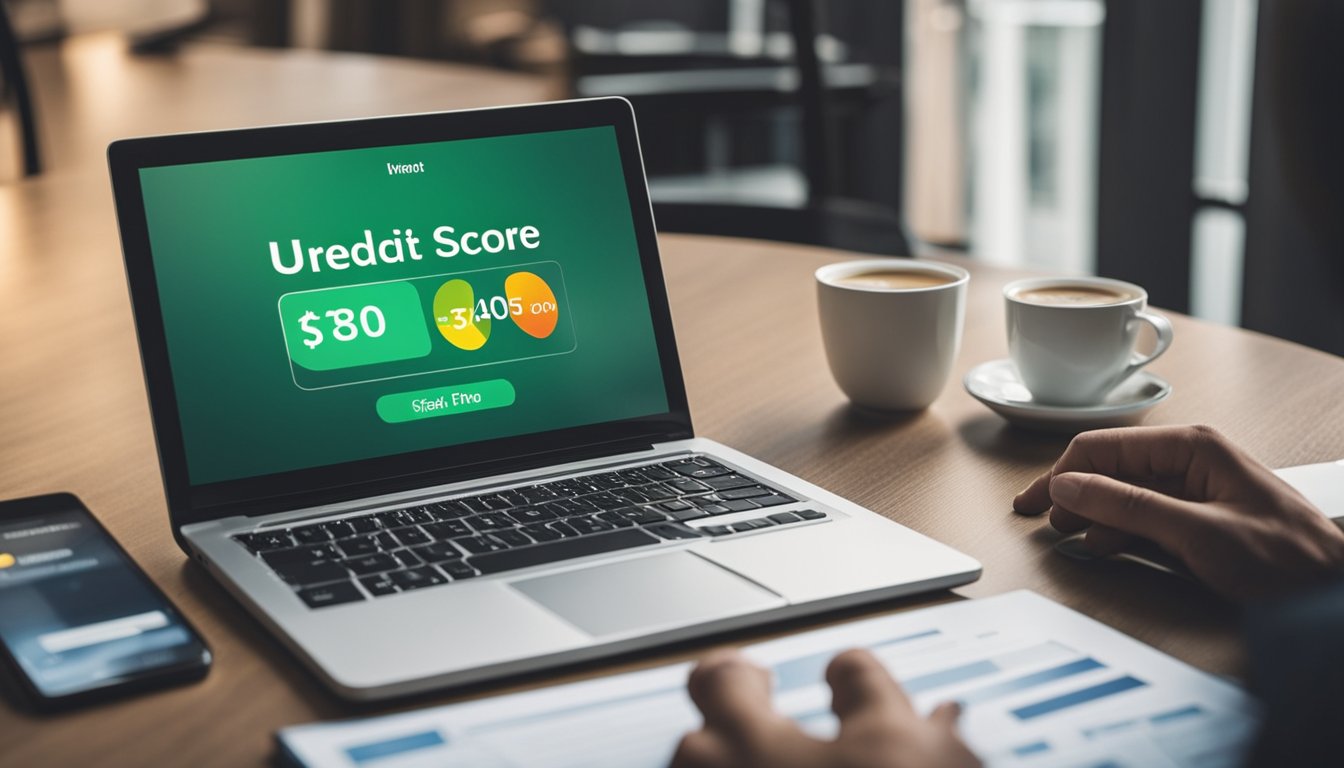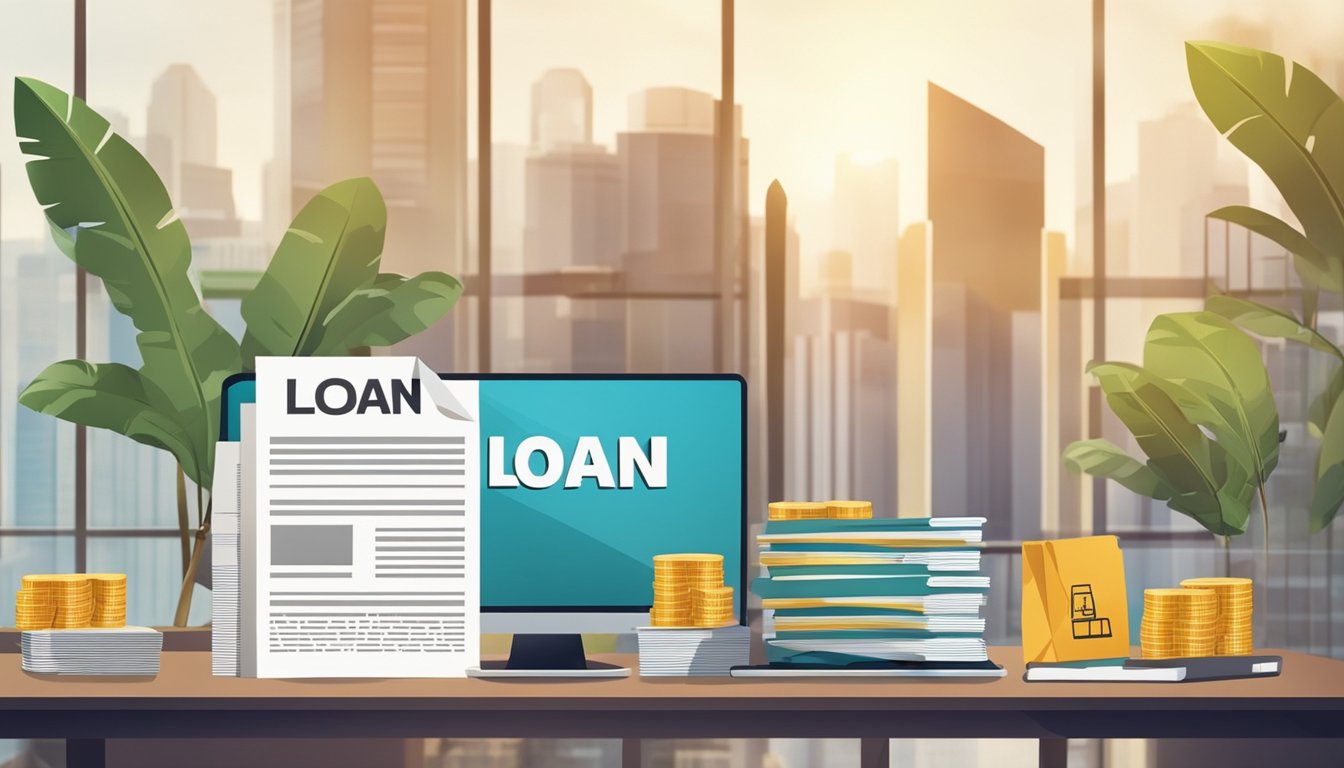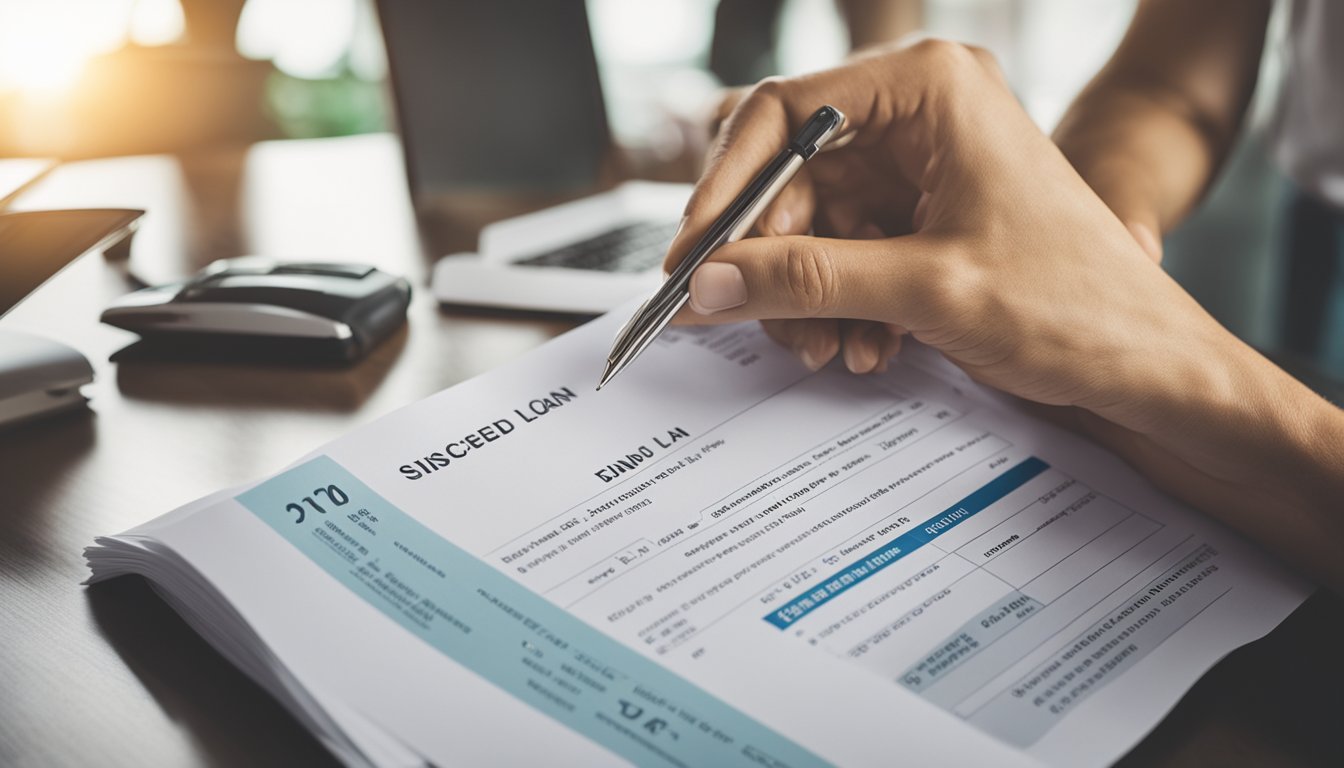If you’re looking for a way to fund a large purchase or consolidate debt, an unsecured loan may be a good option to consider. Unlike a secured loan, which requires collateral such as a home or car, an unsecured loan doesn’t require any collateral. Instead, the loan is based solely on your creditworthiness.

In Singapore, there are several types of unsecured loans available, including personal loans, credit lines, and credit card instalment plans. Each type of loan has its own terms and conditions, so it’s important to understand how they work before applying. Keep reading to learn more about unsecured loans in Singapore, including how they work, where to get them, and their advantages and disadvantages.
Key Takeaways
- Unsecured loans in Singapore don’t require collateral and are based solely on your creditworthiness.
- There are several types of unsecured loans available in Singapore, including personal loans, credit lines, and credit card instalment plans.
- Unsecured loans can be a good option for funding large purchases or consolidating debt, but it’s important to understand the terms and conditions of each loan type before applying.
Understanding Unsecured Loans

If you’re looking for a loan in Singapore, you’ll likely come across the term “unsecured loan”. In simple terms, an unsecured loan is a loan that doesn’t require you to put up any collateral. This means that you don’t have to offer any assets such as your car or house as security for the loan. Instead, the loan is granted based on your creditworthiness.
Definition and Key Characteristics
Unsecured loans are a popular choice for many people in Singapore because they offer flexibility and convenience. Unlike secured loans, which require collateral, unsecured loans are granted based on your creditworthiness and ability to repay the loan. This means that you don’t have to put up any assets as security, making it a less risky option for borrowers.
One of the key characteristics of unsecured loans is that they typically have higher interest rates than secured loans. This is because the lender is taking on more risk by granting you a loan without any collateral. However, unsecured loans are still a popular choice because they offer quick access to funds and are often more flexible than secured loans.
Unsecured vs Secured Loans
The main difference between unsecured and secured loans is that secured loans require collateral, while unsecured loans don’t. Collateral is an asset that you offer to the lender as security for the loan. If you default on the loan, the lender can seize the collateral to recover their losses.
Secured loans are often used to finance large purchases such as a car or a house. In contrast, unsecured loans are often used for smaller purchases or to cover unexpected expenses.
Common Types of Unsecured Loans
There are several types of unsecured loans that you can apply for in Singapore. These include personal loans, credit cards, lines of credit, and revolving loans. Personal loans are a popular choice because they offer a lump sum of money that you can use for any purpose. Credit cards and lines of credit are also popular because they offer flexibility and convenience. Revolving loans are another option that allows you to borrow money as you need it, up to a certain limit.
When applying for an unsecured loan, your credit score will play a significant role in determining whether you are approved and what interest rate you are offered. It’s important to keep in mind that unsecured loans come with higher interest rates than secured loans, so make sure you can afford the repayments before you apply.
Overall, unsecured loans are a popular choice for many people in Singapore because they offer flexibility, convenience, and quick access to funds. If you’re considering applying for an unsecured loan, make sure you understand the terms and conditions of the loan and shop around for the best interest rates and repayment terms.
The Application Process for Unsecured Loans

If you’re interested in applying for an unsecured loan in Singapore, it’s important to understand the application process. Here’s what you need to know:
Eligibility Criteria
Before you apply for an unsecured loan, you need to meet certain eligibility criteria. This includes being a permanent resident of Singapore, having a good credit history and creditworthiness, and providing proof of income. Lenders will also consider your debt-to-income ratio when determining your eligibility.
Documentation Required
When you apply for an unsecured loan, you will need to provide documentation to support your application. This may include your NRIC, proof of income (such as your latest payslip), and bank statements. Lenders may also require additional documentation, such as proof of employment or residency.
Approval and Disbursement
Once you’ve submitted your application and documentation, the lender will review your application and determine whether to approve your loan. If you’re approved, the lender will disburse the loan amount to your bank account. The approval and disbursement process can take anywhere from a few days to a few weeks, depending on the lender and the complexity of your application.
Overall, the application process for unsecured loans in Singapore is straightforward and streamlined. By meeting the eligibility criteria and providing the required documentation, you can increase your chances of being approved for a loan that meets your needs.
Where to Obtain Unsecured Loans in Singapore

If you’re looking for an unsecured loan in Singapore, there are several options available to you. Here are some of the most common places to obtain unsecured loans in Singapore.
Banks and Financial Institutions
Banks and other financial institutions are a popular choice for obtaining unsecured loans in Singapore. Many banks offer personal loans, credit lines, and credit cards that do not require collateral. Before applying for a loan from a bank, it’s important to research the interest rates, fees, and eligibility requirements.
Licensed Money Lenders
Licensed money lenders are another option for obtaining unsecured loans in Singapore. These lenders offer personal loans with competitive interest rates and a streamlined application process. However, it’s important to ensure that the lender is licensed by the Ministry of Law before applying for a loan. Accredit Moneylender is one such licensed money lender in Singapore that offers unsecured loans with flexible repayment terms.
Online Lenders
Online lenders have become increasingly popular in recent years, offering unsecured loans with fast approval times and minimal paperwork. These lenders typically have lower overhead costs than traditional banks, allowing them to offer competitive interest rates. However, it’s important to research the lender’s reputation and read the terms and conditions carefully before applying for a loan.
In conclusion, there are several options available to you if you’re looking for an unsecured loan in Singapore. Whether you choose to go with a bank, licensed money lender, or online lender, it’s important to do your research and compare the different options available to you.
Advantages and Disadvantages of Unsecured Loans

Unsecured loans have their advantages and disadvantages. In this section, we will explore both the pros and cons of unsecured loans, so you can make an informed decision.
Pros of Unsecured Loans
One of the main advantages of unsecured loans is that no collateral is required. This means that you don’t have to put up any assets, such as your home or car, as security for the loan. This is particularly beneficial if you don’t have any assets or don’t want to risk losing them.
Another advantage of unsecured loans is that they offer more flexibility than secured loans. With unsecured loans, you can typically borrow smaller amounts of money, and the repayment terms are often more flexible. This can be useful if you only need a small amount of money or if you want to pay back the loan over a longer period.
Cons of Unsecured Loans
One of the main disadvantages of unsecured loans is that they often come with higher interest rates than secured loans. This is because the lender is taking on more risk by lending you money without any collateral. As a result, you may end up paying more in interest over the life of the loan.
Another potential disadvantage of unsecured loans is that they may be harder to obtain if you have a poor credit score. Lenders typically look at your credit score to determine your creditworthiness, and if you have a low score, you may be seen as a higher risk borrower. This can make it more difficult to get approved for an unsecured loan.
Finally, if you default on an unsecured loan, the lender may take legal action to recover the money you owe. This can include taking you to court or hiring a debt collector to pursue you for the debt. If you’re unable to repay the loan, this can have a negative impact on your credit score and make it harder for you to obtain credit in the future.
In summary, unsecured loans have their advantages and disadvantages. They offer flexibility and don’t require collateral, but they often come with higher interest rates and may be harder to obtain if you have a poor credit score. It’s important to weigh up these pros and cons before applying for an unsecured loan.
Managing Repayment of Unsecured Loans

Managing the repayment of unsecured loans is an important aspect of borrowing. You need to be aware of the repayment terms and options available to you, as well as how to deal with financial difficulties that may arise during the loan tenure. Here are some strategies for debt repayment that you can consider.
Repayment Terms and Options
When you take out an unsecured loan, you will need to make monthly payments to repay the loan over a fixed period. The repayment term typically ranges from 1 to 5 years, depending on the loan amount and the lender’s policies. You should choose a repayment term that suits your budget and financial goals.
Most lenders offer various repayment options, including fixed or variable interest rates, early repayment, and debt consolidation plans. Fixed interest rates provide a stable monthly payment, while variable interest rates may fluctuate over time. Early repayment allows you to pay off the loan before the end of the loan tenure, which can save you money on interest charges. Debt consolidation plans allow you to combine multiple debts into a single loan, which can simplify your finances and reduce your monthly payments.
Dealing with Financial Difficulties
If you experience financial difficulties during the loan tenure, such as a job loss or unexpected expenses, you should contact your lender immediately. They may be able to offer you a repayment holiday or a debt restructuring plan to help you manage your repayments. It is important to be honest and transparent about your financial situation to avoid defaulting on the loan.
Strategies for Debt Repayment
To manage your debt effectively, you should create a budget and stick to it. This will help you track your income and expenses and identify areas where you can cut back on spending. You can use the extra money to make additional payments towards your loan, which can help you pay off the loan faster and reduce your interest charges.
Another strategy for debt repayment is to prioritize your debts based on their interest rates. You should focus on paying off the debts with the highest interest rates first, as they are costing you the most money in interest charges. Once you have paid off the high-interest debts, you can focus on the lower interest debts.
In conclusion, managing the repayment of unsecured loans requires careful planning and budgeting. You should be aware of the repayment terms and options available to you, as well as how to deal with financial difficulties that may arise. By following these strategies for debt repayment, you can manage your debt effectively and achieve your financial goals.
Impact of Unsecured Loans on Credit Score

How Unsecured Loans Affect Credit Rating
When you borrow an unsecured loan, it can impact your credit score. Timely repayments can positively affect your credit score, demonstrating responsible financial behaviour to credit bureaus. However, missed payments or defaults can have a negative impact, potentially lowering your credit score. Lenders often report your loan details to credit bureaus, influencing your credit report and subsequent credit score.
Improving Credit Score with Responsible Borrowing
Responsible borrowing and repayment of unsecured loans can enhance your credit score. By managing your loan effectively, you can demonstrate financial responsibility, which may positively impact your credit score. It’s crucial to borrow only what you can comfortably repay, as high credit utilisation and missed payments can negatively affect your credit score. Always ensure to borrow within your means, and make timely repayments to maintain a healthy credit score.
Special Considerations for Different Loan Purposes

When taking out an unsecured loan in Singapore, it is important to consider the purpose of the loan. Here are some special considerations for different loan purposes:
Consolidating Debt with Unsecured Loans
If you have multiple debts with high interest rates, consolidating them into one unsecured loan with a lower interest rate can be a good option. This can help you save money on interest and make it easier to manage your debt. However, it is important to be disciplined with your spending and avoid taking on new debt while you are paying off your consolidated loan.
Financing Major Life Events
Unsecured loans can be a good option for financing major life events like weddings, education, and medical bills. These loans can provide you with the funds you need to cover the cost of these events without having to dip into your savings. However, it is important to make sure that you can afford the monthly payments and that you are not taking on more debt than you can handle.
Unexpected Expenses and Emergency Funding
Unsecured loans can also be a good option for covering unexpected expenses and emergency funding. These loans can provide you with the funds you need to cover things like car repairs, medical bills, or home repairs. However, it is important to make sure that you are not taking on more debt than you can handle and that you have a plan for paying off the loan.
Overall, unsecured loans can be a good option for a variety of purposes. However, it is important to consider your financial situation and make sure that you can afford the loan before you apply. It is also important to shop around and compare different lenders to find the best deal.
Additional Financial Products Related to Unsecured Loans

If you’re interested in unsecured loans, there are other financial products that you may find useful as well. Here are some of the most popular options available in Singapore:
Credit Card Instalment Plans
Credit card instalment plans allow you to convert your credit card bill into a monthly instalment plan, which can help you manage your finances better. You can use this option to pay for big-ticket items, such as electronics or furniture, without having to pay the full amount upfront. Some credit cards offer 0% interest instalment plans for a limited period, while others charge a low interest rate.
Balance Transfer Options
If you have outstanding credit card debt, you can transfer the balance to another credit card that offers a lower interest rate. This can help you save money on interest charges and pay off your debt faster. Keep in mind that balance transfer options usually come with a processing fee, and you’ll need to make sure you can pay off the transferred balance within the promotional period to avoid paying high interest rates.
Lines of Credit
A line of credit is a type of revolving loan that allows you to borrow money up to a certain limit. You can use this option to access funds whenever you need them, and you’ll only be charged interest on the amount you borrow. Lines of credit are a flexible financial tool that can be used for a variety of purposes, such as home renovations or unexpected expenses.
Overall, these additional financial products can complement your unsecured loan and help you manage your finances better. Make sure to compare different options and choose the one that best fits your needs and budget.
Frequently Asked Questions

What’s the buzz about obtaining an unsecured loan in Singapore?
Unsecured loans are a popular option for those who need quick access to cash without having to put up collateral. They are also a great option for those who do not own any assets that can be used as collateral. Singaporeans are increasingly turning to unsecured loans for their financing needs because of their convenience and flexibility.
Can you enlighten me on the different types of unsecured loans available?
There are several types of unsecured loans available in Singapore, including personal loans, credit lines, balance transfers, and credit card instalment plans. Personal loans are the most common type of unsecured loan and are usually used for big-ticket purchases or to consolidate debt. Credit lines, on the other hand, are revolving credit facilities that allow you to draw down on your credit limit as and when you need it. Balance transfers and credit card instalment plans are typically used to pay off high-interest credit card debt.
Where’s the best place to snag an unsecured loan in the Lion City?
There are several licensed moneylenders and banks in Singapore that offer unsecured loans. It’s important to compare the interest rates and terms offered by different lenders before making a decision. Some popular options include DBS, OCBC, and Maybank.
How do unsecured loans stack up against secured ones?
Unsecured loans do not require collateral, which means that they are typically easier and quicker to obtain than secured loans. However, they usually come with higher interest rates than secured loans because lenders are taking on more risk by lending money without collateral.
What’s the scoop on the interest rates for unsecured loans?
Interest rates for unsecured loans in Singapore vary depending on the lender and your creditworthiness. Generally, interest rates for unsecured loans are higher than those for secured loans because lenders are taking on more risk. It’s important to compare interest rates and terms from different lenders before making a decision.
Could you give us a rundown on the maximum amount you can borrow without security?
The maximum amount you can borrow without security depends on the lender and your creditworthiness. Generally, the maximum amount you can borrow without security is lower than the maximum amount you can borrow with security. It’s important to check with the lender to find out their specific requirements and limits.

